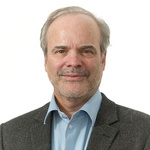Analysis: The President's Turbulent European Vacation
Obama's honeymoon with the world is over.
President Obama's honeymoon with the world is over.
What was it, exactly, about Obama's controversy-marred trip to Germany and the G8 Summit in Northern Ireland that fell so flat? Ummm, how about … everything?
There were the snarky words from Vladimir Putin, who expressed an almost Soviet-esque distance from Washington in his views about Syria. "Of course our opinions do not coincide," the Russian leader said bluntly. There was the coded warning from Chancellor Angela Merkel about spying on friends, and her and Obama's continuing frostiness over the issue of economic stimulus versus austerity. Above all, there was Obama's vague attempt at the Brandenburg Gate to capture some wisp of his past glory by pledging vague plans to cut nuclear arms and an even vaguer concept of "peace with justice."
The "peace with justice" line was a quote from John F. Kennedy, Obama's attempt to steal just a little of JFK's thunder from 50 years before. He didn't come away with much, winning just a smattering of applause from a crowd that was one one-hundredth the size of JFK's. A crowd that, at about 4,500, was also much, much smaller than Obama drew as a candidate in 2008.
Not only is the honeymoon long over, folks. The marriage is becoming deeply troubled and, increasingly, loveless.
On June 26, 1963, you may recall from your history books, Kennedy flew to West Berlin, which was isolated behind the Iron Curtain, and declared "Ich bin ein Berliner" to delirious roars from a crowd of 450,000 Germans who immediately understood that he was telling them that "all free men, wherever they may live," stood behind them.
Some linguists later quibbled that Kennedy should have said "Ich bin Berliner," and that by adding the "ein" he was really saying, "I'm a jelly doughnut," since "Berliner" was the name of a pastry in some parts of Germany. In truth, the Germans didn't misunderstand JFK for a moment, and his speech instantly became one of the most famous and inspiring in modern history.
In contrast to JFK, and Ronald Reagan's almost-as-famous line 24 years later -- "Mr, Gorbachev, tear down this wall!" -- Obama came across as more of a jelly doughnut, a little soft and perhaps too sweet inside, especially compared to the hard-edged Putin. After their meeting, it was clear that Putin, right or wrong, was pursuing a set course on Syria and other issues, frankly backing the regime of Bashar al-Assad, while Obama was continuing to temporize over how much and what kind of aid he would give to the Syrian rebels.
"We cannot dictate the pace of change in places like the Arab world, but we must reject the excuse that we can do nothing to support it," the president declared in his Brandenburg Gate speech. It wasn't much of an applause line. Even after announcing that his "red line" had been crossed in Syria, Obama rejected air strikes and then told Charlie Rose that aid will be delivered "in a careful, calibrated way" because "it is very easy to slip slide your way into deeper and deeper commitments."
Compare that to Putin's active military support of Assad, which has helped the Syrian dictator regain the advantage against the rebels, and Putin's harsher words. After his meeting with British Prime Minister David Cameron, in opposition to arming the rebels, Putin declared: "You will not deny that one does not really need to support the people who not only kill their enemies, but open up their bodies, eat their intestines in front of the public and cameras. Are these the people you want to support? Is it them who you want to supply with weapons? Then this probably has little relation to humanitarian values that have been preached in Europe for hundreds of years."
And even as he quoted Kennedy in his Brandenburg Gate speech Obama appeared to hop lightly from topic to topic, much as his foreign policy has. "The Russians know what they want. I think we've in a situation of strategic drift for several years," says John Arquilla of the Naval Postgraduate School.
Indeed, as I have previously written, to a degree that the administration has not really acknowledged, Russia under Putin has become the chief countervailing force to U.S. power and influence around the world, even more so than China, which often follows Moscow's lead in the U.N. Security Council.
So now, instead of the Americans, it's the Russians who are delivering up the challenging quotes, and drawing the hard lines, in Europe. History may well still be on Obama's side, as he suggested by touting Berlin's "lesson of the ages" in his speech. The audiences, perhaps not so much.







